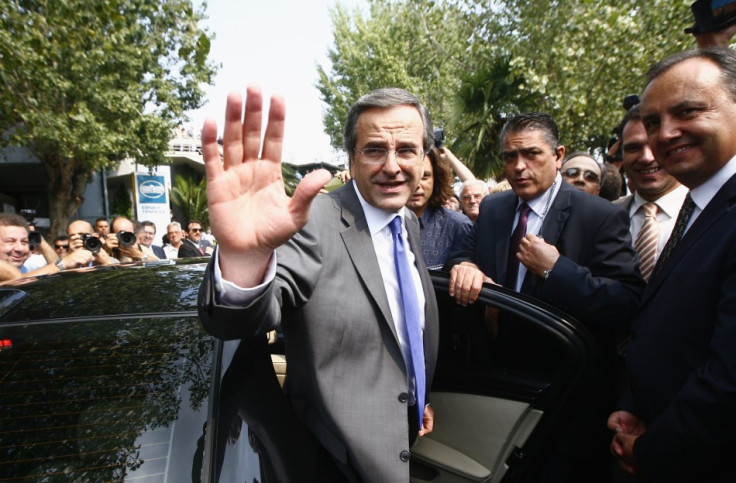Greece Resumes Talks with Lenders as Austerity Plan Stalls [VIDEO]

Greece's leaders will resume meetings with key lenders from the European Union, the International Monetary Fund and the European Central Bank today as efforts to detail nearly €12bn in spending cuts and austerity measures stall and scepticism grows.
Prime Minister Antonis Samaras will meet with the so-called Troika of lenders after a month-long summer break in which many feel portions of its new €11.5bn austerity plan fell to the wayside in the face of domestic political and social opposition.
Greece's three-party coalition government has struggled for months to deliver a detailed plan to the Troika that outlines austerity measures for budgets in 2013 and 2014. Without the new cuts, lenders have said they will not release the delayed tranche of €31bn to Greece that was agreed under the terms of its previous bailout in 2011.
A formal decision on the release is expected at the next EU leaders' summit in October.
Samaras has been striving to agree on specifics of the new cuts with his coalition partners, Pasok and Democratic Left, since the June election which delivered a slim mandate to his New Democracy party. Much of the debate centres around the Troika's demand for 150,000 job cuts in the Greek civil service, a 22 percent reduction in the national minimum wage, reform of the pensions system and around €1.1bn in healthcare spending reductions.
The coalition is slated to meet on 12 September.
Delivering the cuts will be critical to Greece's survival in the Eurozone. Samaras is actively seeking a two-year extension to the 2011 bailout but will be unlikely to get it unless the Troika is convinced that he can win support from his coalition allies for the current round of cuts.
Greece's state-run thinktank, the Center of Planning and Economic Research, has said the country's promise to cut debt to 120 percent of GDP by 2020 is unachievable, unless the government initiates a series of "targeted policy interventions" which include extensions on the timing of the austerity measures and lower interest rates on loans.
Greece "would die" if it left the single currency, Samaras told a rally in Thessaloniki this weekend. "Staying in the euro and regaining credibility is the fight we are fighting now. If we left the euro, pensions wouldn't be cut; they simply wouldn't exist. There would be no spending on medicine. Petrol wouldn't be more expensive: it would be rationed."
Germany's influential Der Spiegel magazine reported this weekend that Chancellor Angela Merkel has effectively rejected the need for a third aid package to Greece but would rather focus on a large-scale reorganisation of the existing agreement, including the early release of and lower interest rates on current loan tranches.
Greece's economy shrank 6.2 percent in the three months ending in June, extending its current recession into a fifth consecutive year. Tax revenues to date have missed the government's target by around €2.8bn as the economy slowed and unemployment surged past 25 percent. The combination has meant that Greece's target of reducing its budget deficit to 7.3 percent this year, from 9.3 percent in 2011, is looking increasingly unlikely, setting up the need for even deeper austerity measures in the coming years.
© Copyright IBTimes 2025. All rights reserved.




















